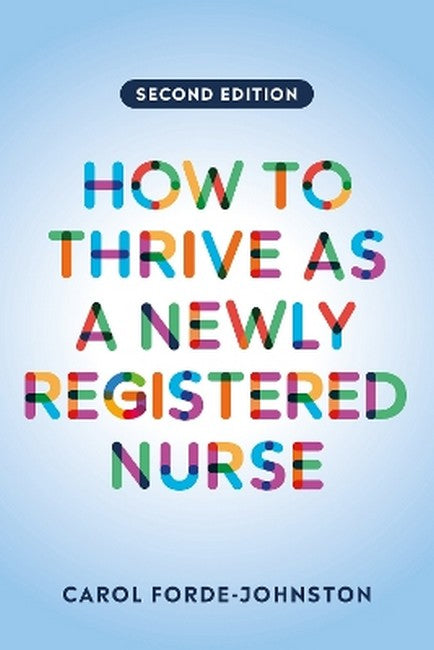Description
Carol Forde-Johnston (RGN, BSc (Hons), PGDip, RNT and MSc) is a Divisional Recruitment and Retention Lead in the Oxford University Hospitals NHS Foundation Trust. Her role involves leading recruitment and retention initiatives and providing structured career advice to all levels of staff, with a particular focus on supporting newly qualified nurses and international nurses. Carol qualified as a registered nurse in 1989 at Coventry School of Nursing and went on to specialise in neurosciences. She worked for 20 years as a lecturer practitioner, a joint appointment between Oxford Brookes University and the local NHS hospital Trust, integrating research, education and clinical practice, and leading a third year nursing degree module and supporting nursing apprenticeships. Carol has published numerous articles relating to education and practice development in nursing and medical journals. Carol has also been involved in patient improvement initiatives and collaborated with Oxford University on a staff-led quality improvement project to prevent inpatient hospital falls. She passionate about developing and supporting staff and student nurses to improve their confidence and fulfil their future aspirations and is currently studying for a PhD in nursing.
About the author; Preface to the second edition; Acknowledgements; Abbreviations 1. Choosing and securing your first nursing post 1.1 How to choose your first post 1.2 Your application and personal statement 1.3 Preparing for interviews as a newly registered nurse 2. Structuring your learning during your first three months registered 2.1 What to expect when you start 2.2 How to structure your learning in your first few months registered 3. Understanding the key structures in nursing 3.1 Past structures and influences on today's health care 3.2 Key local and national structures 3.3 Key types of nursing delivery systems 3.4 The differences between nursing roles 4. Understanding safe staffing and patient acuity and dependency tools 4.1 Past methods used to determine staffing levels for nurses 4.2 Staffing today's NHS 4.3 Important safe staffing guidance for nurses 4.4 Workforce planning and acuity and dependency tools 5. Team working: prioritising, delegating and coordinating care 5.1 Support in practice to develop your management and leadership skills 5.2 How to prioritise your care and manage your time 5.3 How to delegate to others 6. Record-keeping, care planning and clinical risk assessment tools 6.1 Past nursing documentation and use of Electronic Health Records today 6.2 The importance of record-keeping 6.3 The difference between 'good' and 'poor' record-keeping 6.4 Individualised care planning 6.5 The importance of clinical risk assessment tools 7. Assessing mental capacity and supporting those declining care 7.1 The case that led to changes in the law 7.2 Supporting an informed choice 7.3 The law and key policies 7.4 Assessing mental capacity 7.5 Making a decision on behalf of someone 7.6 The importance of record-keeping and follow-up 8. Understanding escalation and incident reporting 8.1 Patient deterioration and escalation 8.2 Incident reporting 8.3 De-escalating challenging situations 8.4 How to deal with a patient's death and a deceased body 9. Structuring your future learning and support after preceptorship period 9.1 Proactively structure your learning and development 9.2 What you should expect over the next year and onwards 10. Developing our practice and profession through future nursing research 10.1 Evidence-based practice 10.2 Research funding opportunities 10.3 Publishing your work in future Index

